TREATMENT FOR PERIPHERAL NEUROPATHY OR FOOT NEUROPATHY
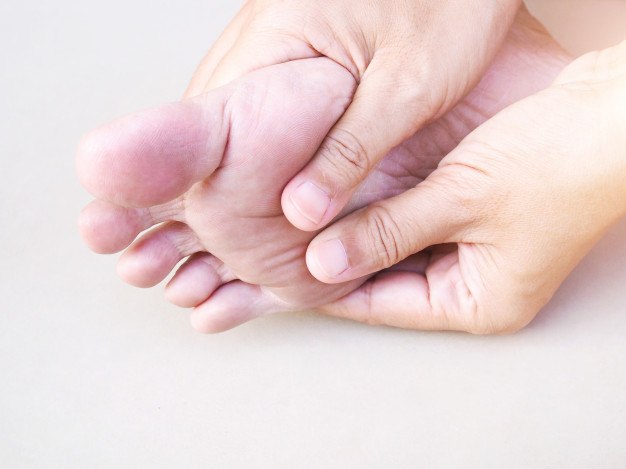
PERIPHERAL NEUROPATHY
Peripheral neuropathy, a result of damage to the nerves outside of the brain and spinal cord (peripheral nerves), often causes weakness, numbness and pain, usually in your hands and feet. It can also affect other areas of your body.
Your peripheral nervous system sends information from your brain and spinal cord (central nervous system) to the rest of your body. The peripheral nerves also send sensory information to the central nervous system.
Peripheral neuropathy can result from traumatic injuries, infections, metabolic problems, inherited causes and exposure to toxins. One of the most common causes is diabetes.
People with peripheral neuropathy generally describe the pain as stabbing, burning or tingling. In many cases, symptoms improve, especially if caused by a treatable condition. Medications can reduce the pain of peripheral neuropathy.
TYPES
More than 100 different types of peripheral neuropathy exist. Each type has unique symptoms and specific treatment options. Peripheral neuropathies are further classified by the type of nerve damage involved. They are;
- Mononeuropathy occurs when only one nerve is damaged.
- Polyneuropathies, which are more common, occur when multiple nerves are damaged.
The three types of peripheral nerves are:
- sensory nerves, which connect to your skin
- motor nerves, which connect to your muscles
- autonomic nerves, which connect to your internal organs
Peripheral neuropathy can affect one nerve group or all three.
CAUSES
Peripheral neuropathy or foot neuropathy is nerve damage caused by a number of conditions. Health conditions that can cause peripheral neuropathy include:
- Autoimmune diseases. These include Sjogren's syndrome, lupus, rheumatoid arthritis, Guillain-Barre syndrome, chronic inflammatory demyelinating polyneuropathy and vasculitis.
- Diabetes. More than half the people with diabetes develop some type of neuropathy.
- Infections. These include certain viral or bacterial infections, including Lyme disease, shingles, Epstein-Barr virus, hepatitis B and C, leprosy, diphtheria, and HIV
- Inherited disorders. Disorders such as Charcot-Marie-Tooth disease are hereditary types of neuropathy.
- Tumors. Growths, cancerous (malignant) and noncancerous (benign), can develop on the nerves or press nerves. Also, polyneuropathy can arise as a result of some cancers related to the body's immune response. These are a form of a degenerative disorder called paraneoplastic syndrome.
- Bone marrow disorders. These include an abnormal protein in the blood (monoclonal gammopathies), a form of bone cancer (myeloma), lymphoma and the rare disease amyloidosis.
- Other diseases. These include kidney disease, liver disease, connective tissue disorders and an underactive thyroid (hypothyroidism).
Other causes of neuropathies include:
- Alcoholism. Poor dietary choices made by people with alcoholism can lead to vitamin deficiencies.
- Exposure to poisons. Toxic substances include industrial chemicals and heavy metals such as lead and mercury.
- Medications. Certain medications, especially those used to treat cancer (chemotherapy), can cause peripheral neuropathy.
- Trauma or pressure on the nerve. Traumas, such as from motor vehicle accidents, falls or sports injuries, can sever or damage peripheral nerves. Nerve pressure can result from having a cast or using crutches or repeating a motion such as typing many times.
- Vitamin deficiencies. B vitamins — including B-1, B-6 and B-12 — vitamin E and niacin are crucial to nerve health.
In a number of cases, no cause can be identified (idiopathic).
SYMPTOMS
The symptoms of peripheral neuropathy or foot neuropathy include:
- tingling in the hands or feet
- a feeling like you’re wearing a tight glove or sock
- sharp, stabbing pains
- numbness in the hands or feet
- a weak, heavy feeling in the arms and legs, which sometimes may feel like your legs or arms lock in place
- regularly dropping things from your hands
- a buzzing or shocking sensation
- thinning of the skin
- a drop in blood pressure
- sexual dysfunction, especially in men
- constipation
- digestive difficulty
- diarrhea
- excessive sweating
These symptoms can also indicate other conditions.
Our Branches
Valasaravakkam
Kotturpuram
RISK FACTORS
Peripheral neuropathy or foot neuropathy risk factors include:
- Diabetes, especially if your sugar levels are poorly controlled
- Alcohol abuse
- Vitamin deficiencies, particularly B vitamins
- Infections, such as Lyme disease, shingles, Epstein-Barr virus, hepatitis B and C, and HIV
- Autoimmune diseases, such as rheumatoid arthritis and lupus, in which your immune system attacks your own tissues
- Kidney, liver or thyroid disorders
- Exposure to toxins
- Repetitive motion, such as those performed for certain jobs
- Family history of neuropathy
COMPLICATIONS
Complications of peripheral neuropathy or foot neuropathy can include:
- Burns and skin trauma. You might not feel temperature changes or pain on parts of your body that are numb.
- Infection. Your feet and other areas lacking sensation can become injured without your knowing. Check these areas regularly and treat minor injuries before they become infected, especially if you have diabetes.
- Falls. Weakness and loss of sensation may be associated with lack of balance and falling.
Diagnosis
Peripheral neuropathy or foot neuropathy has many potential causes. Besides a physical exam, which may include blood tests, diagnosis usually requires:
- A full medical history. Your doctor will review your medical history, including your symptoms, your lifestyle, exposure to toxins, drinking habits and a family history of nervous system (neurological) diseases.
- Neurological examination. Your doctor might check your tendon reflexes, your muscle strength and tone, your ability to feel certain sensations, and your posture and coordination.
Tests
Your doctor may order tests, including:
- Blood tests. These can detect vitamin deficiencies, diabetes, abnormal immune function and other indications of conditions that can cause peripheral neuropathy.
- Imaging tests. CT or MRI scans can look for herniated disks, tumors or other abnormalities.
- Nerve function tests. Electromyography (EMG) records electrical activity in your muscles to detect nerve damage. A thin needle (electrode) is inserted into the muscle to measure electrical activity as you contract the muscle.
At the same time as an electromyogram, your doctor or an EMG technician typically performs a nerve conduction study. Flat electrodes are placed on the skin and a low electric current stimulates the nerves. Your doctor will record your nerves' responses to the electric current. - Other nerve function tests. These might include an autonomic reflex screen that records how the autonomic nerve fibers work, a sweat test that measures your body's ability to sweat, and sensory tests that record how you feel touch, vibration, cooling and heat.
- Nerve biopsy. This involves removing a small portion of a nerve, usually a sensory nerve, to look for abnormalities.
- Skin biopsy. Your doctor removes a small portion of skin to look for a reduction in nerve endings.
CONVENTIONAL TREATMENT FOR PERIPHERAL NEUROPATHY
Treatment goals are to manage the condition causing your neuropathy and to relieve symptoms. If your lab tests indicate no underlying condition, your doctor might recommend watchful waiting to see if your neuropathy improves.
Medications
Besides medications used to treat conditions associated with peripheral neuropathy, medications used to relieve peripheral neuropathy signs and symptoms include:
- Pain relievers. Over-the-counter pain medications, such as nonsteroidal anti-inflammatory drugs, can relieve mild symptoms. For more-severe symptoms, your doctor might prescribe painkillers.
Medications containing opioids, such as tramadol (Conzip, Ultram) or oxycodone (Oxycontin, Roxicodone, others), can lead to dependence and addiction, so these drugs generally are prescribed only when other treatments fail. - Anti-seizure medications. Medications such as gabapentin (Gralise, Neurontin, Horizant) and pregabalin (Lyrica), developed to treat epilepsy, may relieve nerve pain. Side effects can include drowsiness and dizziness.
- Topical treatments. Capsaicin cream, which contains a substance found in hot peppers, can cause modest improvements in peripheral neuropathy symptoms. You might have skin burning and irritation where you apply the cream, but this usually lessens over time. Some people, however, can't tolerate it.
Lidocaine patches are another treatment you apply to your skin that might offer pain relief. Side effects can include drowsiness, dizziness and numbness at the site of the patch. - Antidepressants. Certain tricyclic antidepressants, such as amitriptyline, doxepin (Silenor, Zonalon) and nortriptyline (Pamelor), have been found to help relieve pain by interfering with chemical processes in your brain and spinal cord that cause you to feel pain.
The serotonin and norepinephrine reuptake inhibitor duloxetine (Cymbalta) and the extended-release antidepressant venlafaxine (Effexor XR) also might ease the pain of peripheral neuropathy caused by diabetes.
Side effects of antidepressants may include dry mouth, nausea, drowsiness, dizziness, decreased appetite and constipation.
Therapies
Various therapies and procedures might help ease the signs and symptoms of peripheral neuropathy.
- Transcutaneous electrical nerve stimulation (TENS). Electrodes placed on the skin deliver a gentle electric current at varying frequencies. TENS should be applied for 30 minutes daily for about a month.
- Plasma exchange and intravenous immune globulin. These procedures, which help suppress immune system activity, might benefit people with certain inflammatory conditions.
Plasma exchange involves removing your blood, then removing antibodies and other proteins from the blood and returning the blood to your body. In immune globulin therapy, you receive high levels of proteins that work as antibodies (immunoglobulins). - Physical therapy. If you have muscle weakness, physical therapy can help improve your movements. You may also need hand or foot braces, a cane, a walker, or a wheelchair.
- Surgery. If you have neuropathies caused by pressure on nerves, such as pressure from tumors, you might need surgery to reduce the pressure.
PREVENTION
Manage underlying conditions
The best way to prevent peripheral neuropathy or foot neuropathy is to manage medical conditions that put you at risk, such as diabetes, alcoholism or rheumatoid arthritis.
Make healthy lifestyle choices
These habits support your nerve health:
- Eat a diet rich in fruits, vegetables, whole grains and lean protein to keep nerves healthy. Protect against vitamin B-12 deficiency by eating meats, fish, eggs, low-fat dairy foods and fortified cereals. If you're vegetarian or vegan, fortified cereals are a good source of vitamin B-12, but talk to your doctor about B-12 supplements.
- Avoid factors that may cause nerve damage, including repetitive motions, cramped positions that put pressure on nerves, exposure to toxic chemicals
- Take care of your feet, especially if you have diabetes. Check daily for blisters, cuts or calluses. Wear soft, loose cotton socks and padded shoes. You can use a semicircular hoop, which is available in medical supply stores, to keep bed covers off hot or sensitive feet.
- Exercise. Regular exercise, such as walking three times a week, can reduce neuropathy pain, improve muscle strength and help control blood sugar levels. Gentle routines such as yoga and tai chi might also help.
- Quit smoking. Cigarette smoking can affect circulation, increasing the risk of foot problems and other neuropathy complications.
- Avoid excessive alcohol. Alcohol can worsen peripheral neuropathy.
- Monitor your blood glucose levels. If you have diabetes, this will help keep your blood glucose under control and might help improve your neuropathy.
CLINICAL DIAGNOSIS OF TINGLING IN FEET USING ACUPUNCTURE
During an acupuncture treatment, your acupuncturist inserts very thin needles into specific spots on your body. Insertion of the needles usually causes little discomfort.
Each person who performs acupuncture has a unique style, often blending aspects of Eastern and Western approaches to medicine. To determine the type of acupuncture treatment that will help you the most, your practitioner may ask you about your symptoms, behaviors and lifestyle. He or she may also closely examine:
- The parts of your body that are painful
- The shape, coating and color of your tongue
- The color of your face
- The strength, rhythm and quality of the pulse in your wrist
This initial evaluation and treatment may take up to 60 minutes. Subsequent appointments usually take about a half-hour. A common treatment plan for a single complaint would typically involve one or two treatments a week. The number of treatments will depend on the condition being treated and its severity. In general, it's common to receive six to eight treatments.
EFFECTIVENESS OF ACUPUNCTURE
Acupuncture has excellent results with reversing and treating small nerve fiber damage of the hands and feet. It has been shown to help manage the nerve pain and numbness. The benefits of using acupuncture is to decrease numbness, decrease sharp/burning pain, no more “ant crawling sensation”, healing nerve damage, improve balance, improved ability to walk on uneven surfaces, and be able to improve grip while drinking coffee. Acupuncture is very effective for Chemotherapy induced Neuropathy when Acupuncture treatment is started at the very beginning of Chemotherapy to restore nerve function.
RELIEF OF PERIPHERAL NEUROPATHY USING ACUPUNCTURE
This depends on how long the person has had the nerve damage. In hindsight, the treatment time is much shorter than how long the person has had the Peripheral Neuropathy, which is usually years. The average treatment plan is between 10 to 20 visits, which can span over 6 weeks to 3 months. The frequency per week depends on the medical case history, how debilitating the pain is, and how it is affecting their day-to-day life. The longer one has had the nerve damage, the more work it will take to restore the nerve health. The Licensed Acupuncturist will provide clear answers how many treatments, its frequency per week, what changes to expect and cost of treatment.
MECHANISM OF ACUPUNCTURE
According to Traditional Chinese Medicine, pain and dysfunction are caused by a blockage of qi-energy and blood. If qi-energy and blood don’t flow properly, it prevents cells and tissues from receiving nourishment and can lead to pain and functional problems. In addition, depending on the symptoms experienced, there may be specific meridians that are also affected by the condition. This can affect where the pain and numbness are occurring and can also be responsible for accompanying symptoms. Acupuncture treatment typically will involve both local points to treat the meridians affected and the symptoms experienced, combined with points for strengthening and building up the body to augment qi-energy and blood. In this way, acupuncture can help to relieve many of the symptoms experienced, as well as help to strengthen the body and improve health to improve the functioning of the nerves and the body as a whole. Acupuncture shows promising results for those suffering from Peripheral neuropathy or foot neuropathy. Studies have demonstrated that acupuncture may help to improve nerve conduction, and the World Health Organization recognizes acupuncture as a useful therapy for neurological symptoms. An individual may not recover immediately or completely through acupuncture, but treatment can make a difference in the symptoms experienced and one’s comfort level. With time, treatments may have a lasting positive impact on Peripheral neuropathy or foot neuropathy and quality of life.
BEST CURE FOR TINGLING IN FEET
Looking for the best relief for Peripheral neuropathy or foot neuropathy in Chennai, here’s why you should reach out to the expert Acupuncturist. A. Shaji Bharath from the best rated clinic Dr.Bharath’s Acu Heal. He is currently treating patients for a wide range of conditions. As a best acupuncture practitioner with 15 years of experience, and having worked with few Diabetologists, Acupuncturist. A. Shaji Bharath can create the treatment plan for the best cure for tingling in feet to manage the condition that's tailored to your needs. As the top acupuncture doctor in Chennai he has witnessed acupuncture doing wonders for people suffering from Peripheral neuropathy or foot neuropathy. The effectiveness rate increases several times just with one course of Acupuncture. So, take some time to find the right pain management and best remedy for acupuncture approach that suits you. Most of the people swear by acupuncture, citing it as a best cure and a ‘miracle’ to improving their quality of life. To contact the top acupuncture doctor in Chennai, Dial: +91 9884746916 or Visit: drbharathsacuheal.com for more details.
BEST ACUPUNCTURE DOCTOR NEAR ME
To choose the Best doctor for Acupuncture, it's important that the Acupuncturist should have a decade of experience and treated at least 1000 to 2000 patients.
You can also search for the Best Acupuncture Doctor near me or ask your primary care physician to refer an experienced Acupuncturist nearby. Once you find the Best Acupuncture Doctor in Chennai, you may go through their google reviews first and then fix an appointment with the doctor only when you are satisfied with the reviews.
The Best Acupuncture Doctor should address your concerns and help you feel more comfortable before your first session. Acupuncture usually takes numerous sessions or several weeks to get a complete cure in any ailment but within 3 or 4 sessions the patients will experience positive differences.
BEST ACUPUNCTURE CLINIC NEAR ME
Owing to the demand for the treatment, there are numerous clinics popping up and it is sometimes skeptical to choose the best or even the safe one. To address such concerns, you can look into the following points to choose the best acupuncture clinic for Peripheral neuropathy or foot neuropathy. Acupuncture is also offered in hospital pain clinics and by healthcare organizations but it is ideal to visit the best Acupuncture Clinic. If you are not sure, it would be a good idea to contact your local doctor to see if they would be prepared to refer to the best rated acupuncture clinics,For example in cases where a patient specifically requests acupuncture for Peripheral neuropathy or foot neuropathy or where it is felt that acupuncture would complement conventional treatment. In some cases acupuncture is offered as top rated clinics near me because conventional treatment has failed or produced unacceptable side effects.
Most of the best acupuncture clinics that treats for Peripheral neuropathy or foot neuropathy will spell out very clearly
- what type of acupuncture they practice
- how much they charge
- how professional they are - at present anyone can set themselves up as an acupuncturist but reputable practitioners will belong to an organization
- whether the premises are hygienic and smart
- what other therapies they offer
So while you are filtering the best clinics for acupuncture that treats Peripheral neuropathy or foot neuropathy you can look out for the above said factors.
We have been rewarded a 5-star rating from Google & Practo. You can also check the reviews there.
THE BOTTOM LINE
- The symptoms of Peripheral neuropathy can range from mild and non-existent to severe and disabling.
- Treating Peripheral Neuropathy should include finding its underlying cause as well as relieving its symptoms.
- It may take time and effort on you and the doctor's parts to properly diagnose and treat your condition.
- You can make many changes in lifestyle to manage your Peripheral Neuropathy symptoms.
- Many different types of drugs are used to treat Peripheral Neuropathy, though many of them interact with HIV drugs.
- Current research is showing hopeful results on a couple of new treatments for PN.
They should also tell their doctor about any related symptoms. The doctor can help reach a diagnosis and recommend appropriate treatment.
SCIENTIFIC REFERENCES
- Dimitrova A. (2017). Introducing a Standardized Acupuncture Protocol for Peripheral Neuropathy: A Case Series. Medical acupuncture, 29(6), 352–365.
- . Wong, R., & Sagar, S. (2006). Acupuncture Treatment for Chemotherapy-Induced Peripheral Neuropathy – a Case Series. Acupuncture in Medicine, 24(2), 87–91.
For further clarifications or
to fix an Appointment
Thank you for choosing us
Our experts will get back to you at the earliest
or
FAQ:
What are the services provided for peripheral neuropathy by Dr. Bharath’s Acu Heal?
After a thorough investigation by pulse and tongue diagnosis, condition of the disease is understood by the Acupuncturist .
The treatment will be given based on the disease’s chronicity and acuteness. In the first few sessions, positive changes in symptoms may be experienced and after several more sessions there are 90 to 100% chance that the patient be cured of the disease .
This treatment will help in inducing sound sleep which will help and play a vital role in reversing this ailment. Simultaneously the patient will be advised on a diet and exercise regime.
What are the benefits of acupuncture for peripheral neuropathy?
This is a drugless therapy and there are no side effects. During or after completing the course of treatment any form of medication if any can be stopped.
How many sessions do you need for peripheral neuropathy?
It takes around 30 to 40 sessions in a period of 4 to 5 months.



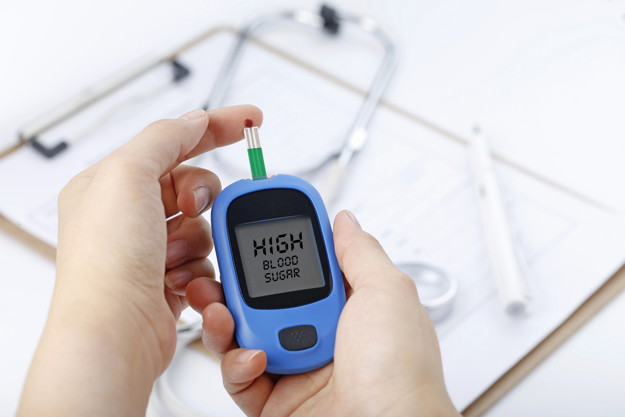 TREATMENT FOR DIABETES
TREATMENT FOR DIABETES
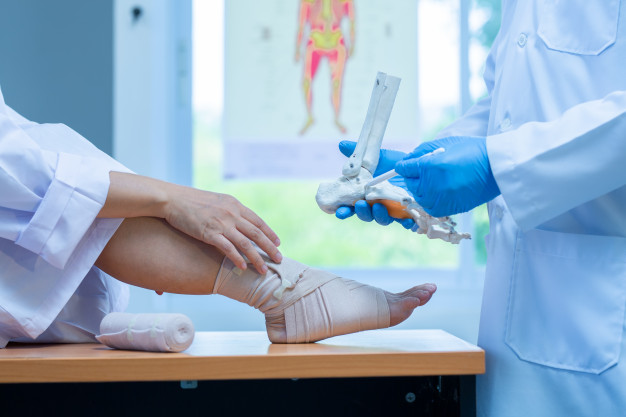 TREATMENT FOR FEET NUMBNESS
TREATMENT FOR FEET NUMBNESS
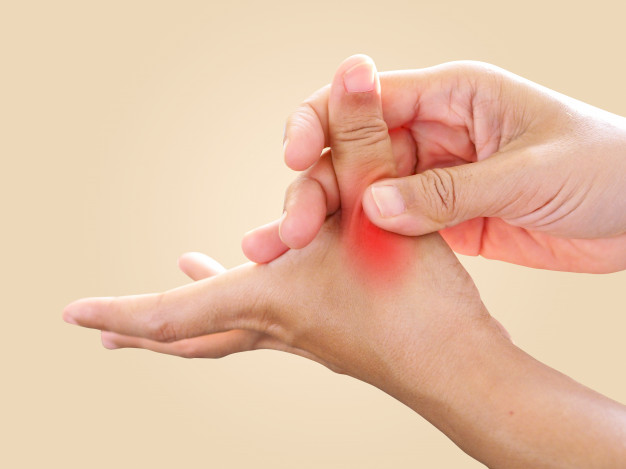 TREATMENT FOR HAND NUMBNESS
TREATMENT FOR HAND NUMBNESS
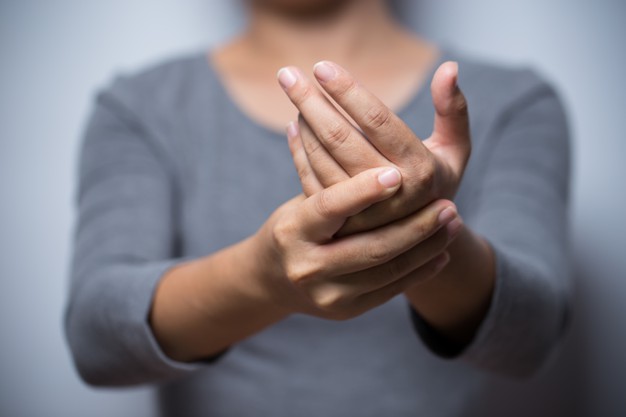 TREATMENT FOR NEUROPATHY
TREATMENT FOR NEUROPATHY
